The application of digital transformation is enabling agricultural products to meet market demands for transparency in production processes and product traceability. Additionally, digital transformation is helping farmers increase the value and efficiency of their products.
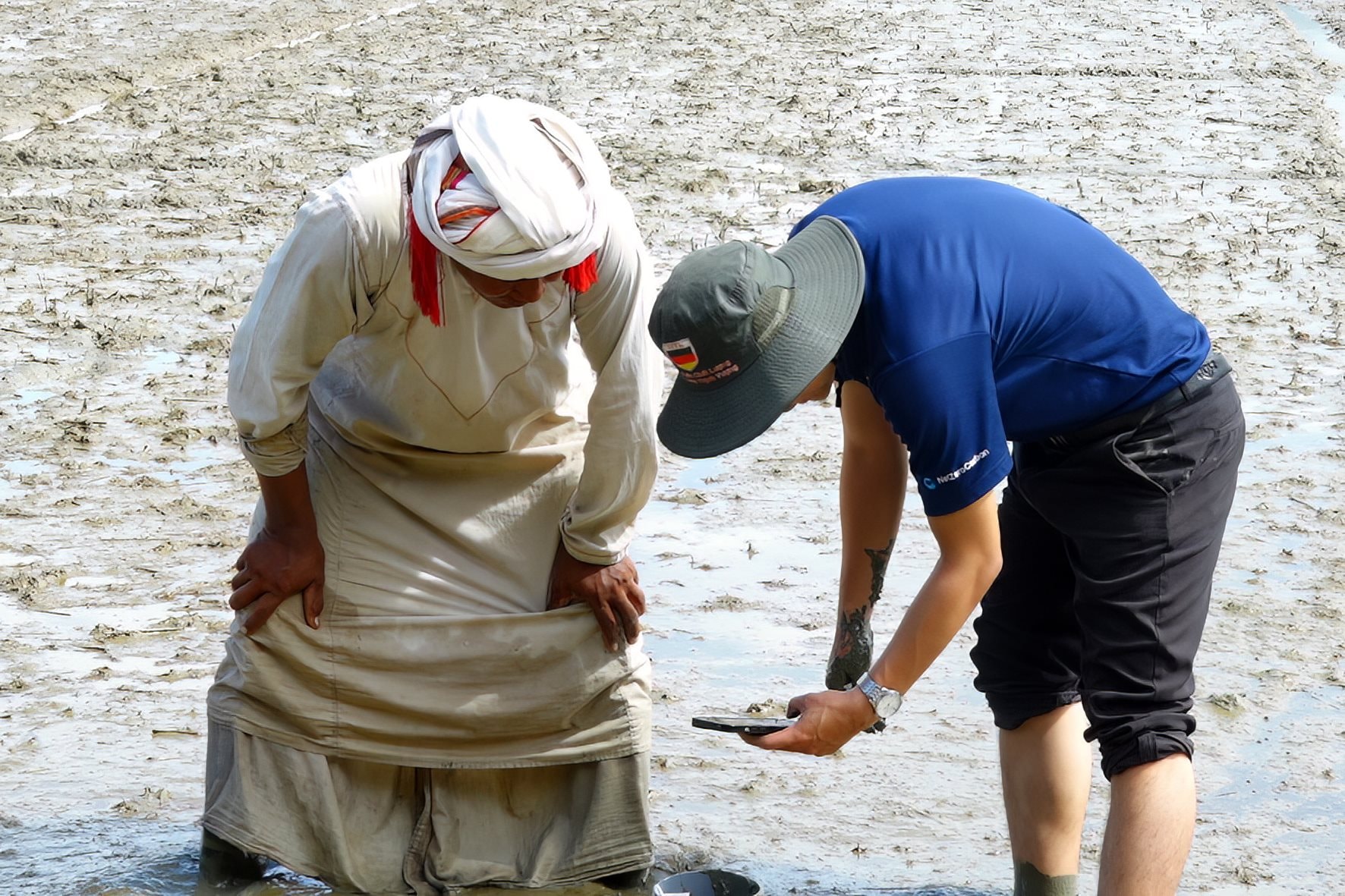
Towards Sustainable Rice Cultivation
To effectively implement the Binh Thuan Provincial People’s Committee’s plan for developing high-quality commercial rice production areas, the Provincial Agricultural Extension Center has focused on training, advocacy, and establishing agricultural extension models that transfer advanced scientific and technical applications in rice production. Notably, sustainable rice cultivation models, such as the Sustainable Rice Platform (SRP) model—which incorporates the “3 reductions, 3 increases” and “1 must, 5 reductions” principles—integrate numerous innovations. Concurrently, the adoption of digital transformation in maintaining electronic production logs for rice farmers has enhanced transparency in the production process through labeling systems, building green brands, and increasing product competitiveness. For instance, in 2024, the Agricultural Extension Center organized technical training on sustainable SRP rice production and the use of electronic production logs and traceability systems, with 95 classes held, each accommodating 30 participants across five key rice-producing districts in the province.
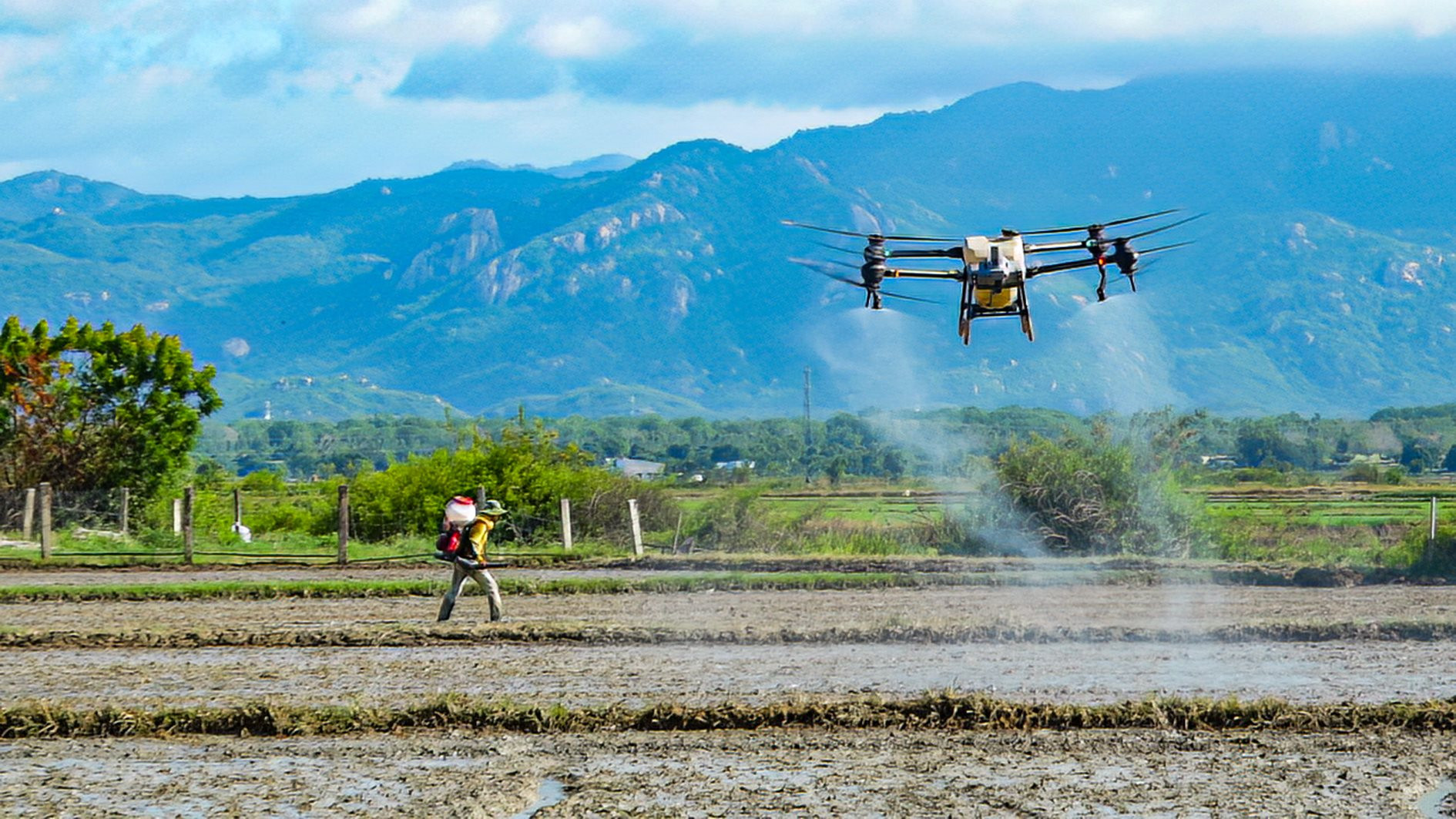
Binh Thuan is also implementing a “footprint-free” field model, further demonstrating its commitment to sustainable agricultural practices.
Binh Thuan develops sustainable Rice Production Models and Digital Agriculture Solutions
In addition, Binh Thuan is establishing demonstration models for rice production that adhere to VietGAP standards or equivalent, including a “footprint-free” field covering 160 hectares. The province is also showcasing the application of several high-quality new rice varieties such as Dai Thom 8, ST25, and Bac Thinh, with a total area exceeding 50 hectares. Notably, all over 200 hectares of rice production are being implemented in a synchronized manner across key rice-growing districts in the province, including Duc Linh, Tan Linh, Ham Thuan Bac, and Bac Binh. These rice crops are cultivated according to the prescribed technical processes, applying the “1 must, 5 reductions” measures. Specifically, farmers are encouraged to use certified or elite rice seeds recommended by local agricultural authorities; reduce the amount of seeds sown to between 80 and 120 kg per hectare; decrease fertilizer usage; limit irrigation water; and minimize post-harvest losses.
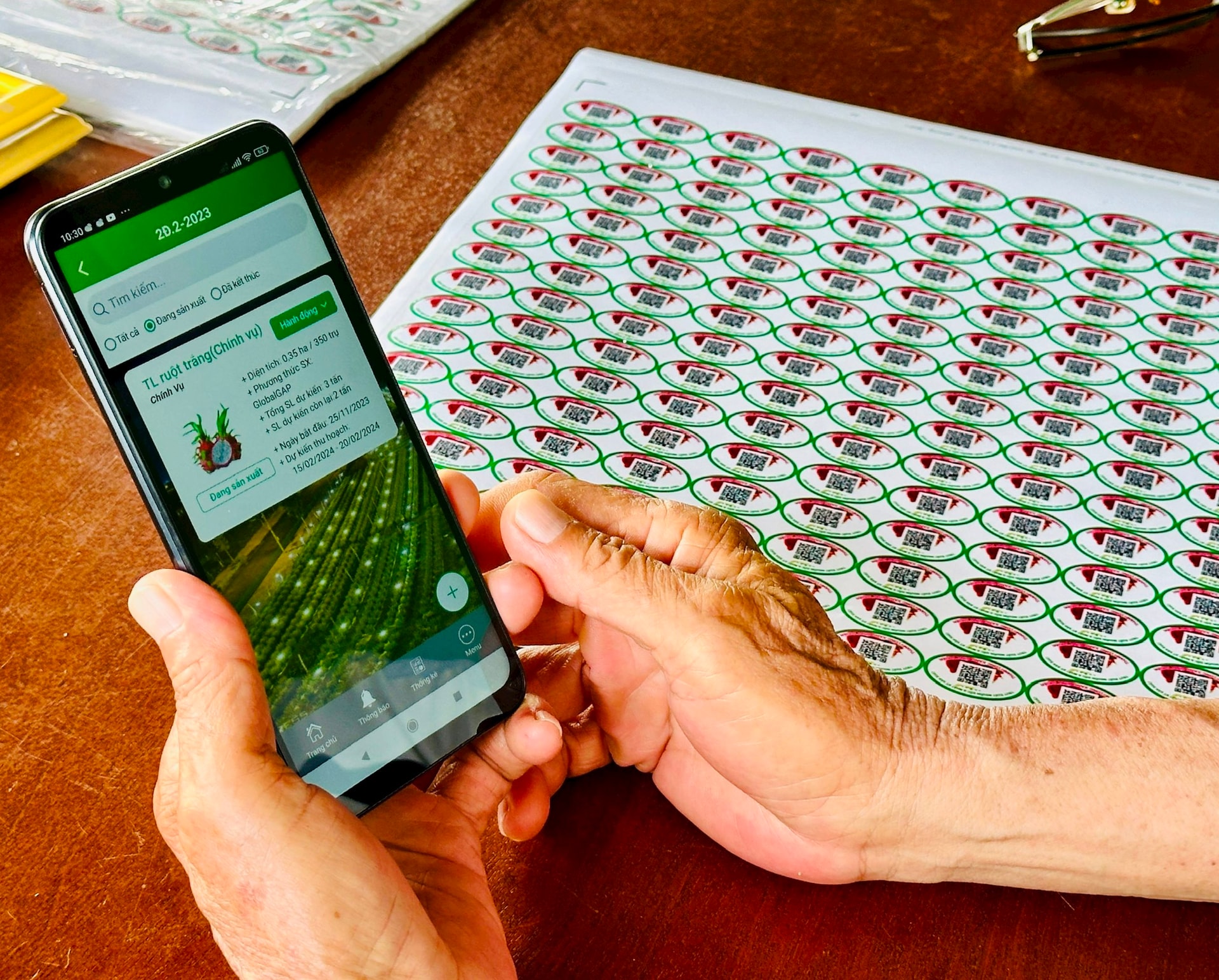
Digital Transformation: A Key Method in Agricultural Production
A standout feature of the ongoing digital transformation in Binh Thuan’s agricultural sector is the APP NÔNG NGHIỆP SỐ BÌNH THUẬN, which has become an essential tool for farmers and agricultural enterprises. This app enables them to produce high-quality agricultural products at the lowest possible cost while maximizing profits. In 2024, all rice production models have incorporated electronic log recording, thereby enhancing transparency in the production process and enabling traceability of the rice produced, which is linked to the establishment of green branding. Thus, the integration of digital transformation with green transition is not only beneficial but also necessary for sustainable agricultural development.
.jpg)
Farmers in Binh Thuan are utilizing the APP NÔNG NGHIỆP SỐ BÌNH THUẬN in dragon fruit production, showcasing the province’s commitment to advancing agricultural practices through technology.
Binh Thuan’s Agricultural Sector Emphasizes Capacity Building and Technology Adoption
According to Mr. Ngo Thai Son, Deputy Director of the Binh Thuan Agricultural Extension Center, current demands require both citizens and enterprises to enhance their capabilities and adopt technology. This is essential not only to meet high technical requirements for product quality but also for packaging and environmental standards. To produce rice that meets integration and export needs, we are focusing on applying scientific technology to build an ecological agriculture framework, modern rural areas, and civilized farmers. Specifically, rice production is being implemented under the “1 must, 6 reductions” approach, linking digital transformation with green transition and integrating multiple values for Binh Thuan’s rice products. Mr. Son also noted that in addition to the “5 reductions” aimed at improving product quality and economic efficiency, the sixth reduction is “reducing emissions.” This aligns with the project that the Ministry of Agriculture and Rural Development is implementing in the Mekong Delta (the one million hectares of rice emission reduction project). Although Binh Thuan is not included in this project, it has always been at the forefront of adopting innovations to keep pace with general development trends.
In addition to implementing digital transformation and green practices in rice cultivation, Binh Thuan’s agricultural sector has recently applied a carbon footprint traceability system for several cooperatives, farms, and dragon fruit production areas. This initiative allows domestic and international consumers to scan QR codes transparently to trace the origin of products and the extent of green or environmentally friendly practices applied during dragon fruit production. The green labeling sets Binh Thuan’s dragon fruit apart in terms of environmental impact and competitive advantage. The green label serves as certification representing compliance with international quality standards concerning the environment, nature, ecosystem protection, and food safety. Achieving this green label has been made possible through robust and synchronized digital transformation efforts in agricultural extension activities.
Binh Thuan faces challenges in digital transformation but farmers are adapting
Despite the challenges and difficulties faced during the digital transformation process in agricultural production in Binh Thuan, the determination and efforts of the entire political system and local communities have led to a shift in mindset among farmers. Binh Thuan farmers are increasingly changing their approaches to create products that are suited to various market segments. This transformation is not limited to rice or dragon fruit cultivation; all agricultural activities must adopt appropriate processes and utilize inputs wisely, such as fertilizers and pesticides, to avoid damaging ecosystems and biodiversity. This commitment is aimed at achieving both digital transformation and green transition in the province’s agriculture.
Under the Plan No. 4517/KH-UBND dated November 20, 2023, issued by the Binh Thuan Provincial People’s Committee, the goal is to develop high-quality commercial rice production areas in the province by 2025. Specifically, the province aims to stabilize the area of high-quality commercial rice production at 17,745 hectares, with a yield exceeding 6 tons per hectare. Approximately 50% of this area will involve partnerships and contracts with enterprises for production and product consumption. Additionally, the plan anticipates an increase in profits of about 10-15% compared to conventional production methods.

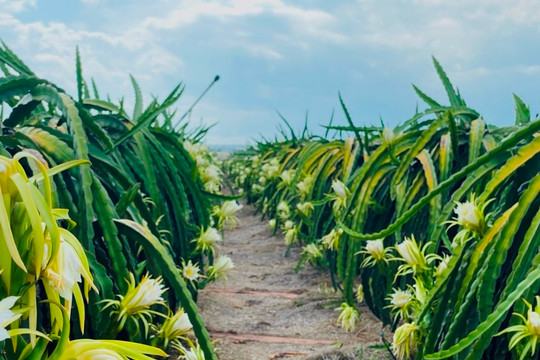
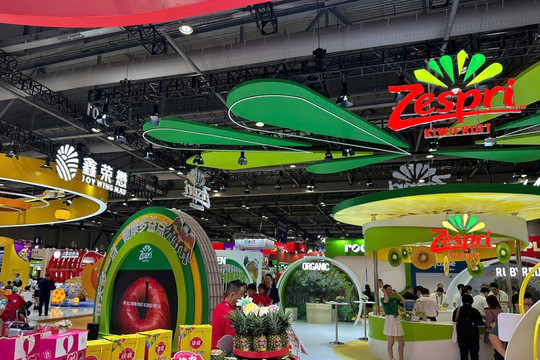
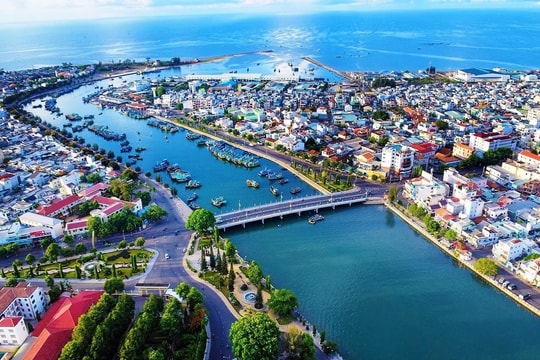
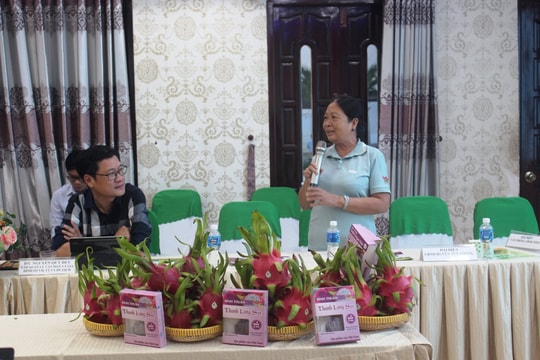

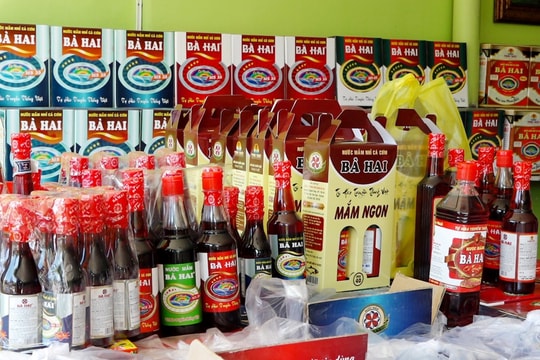








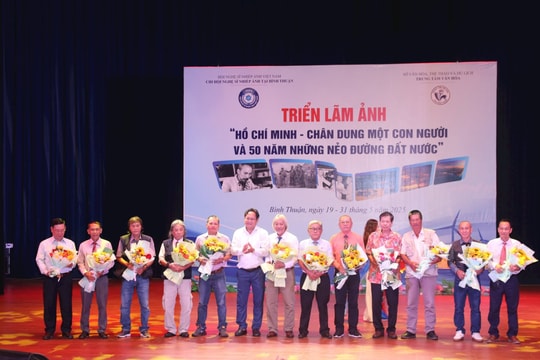


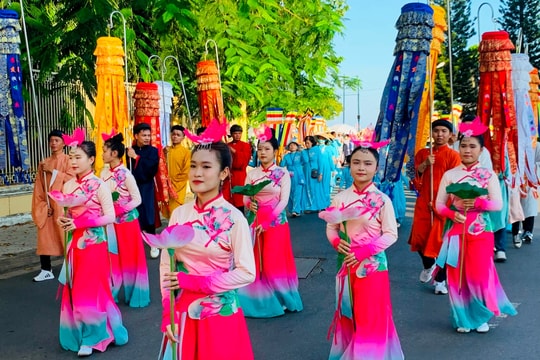



.jpg)




.jpeg)

.jpeg)


.jpeg)


